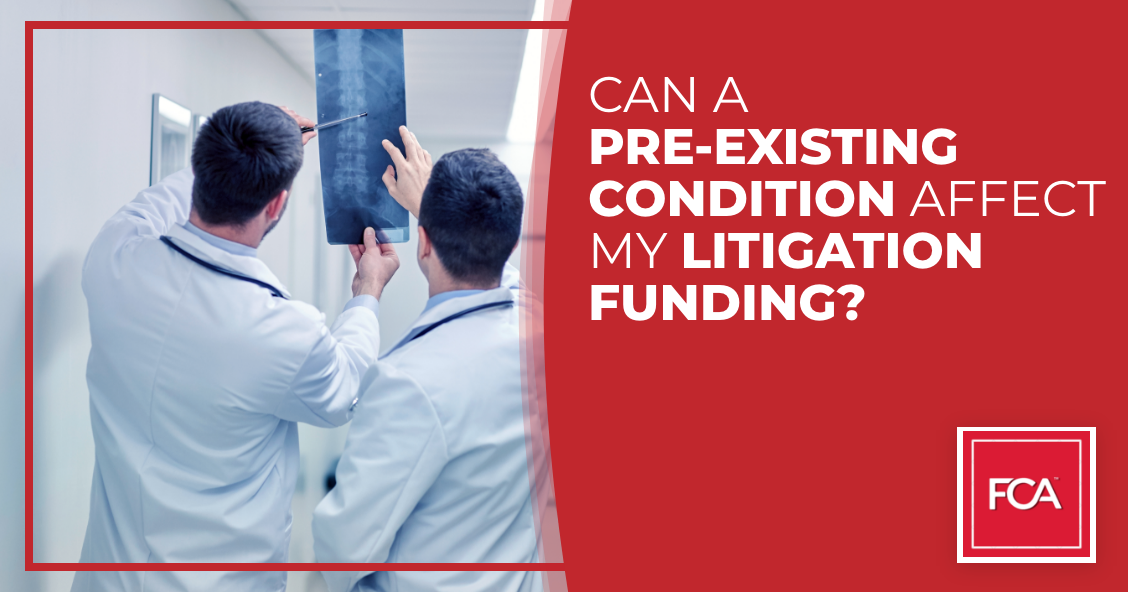If you’ve been injured in an accident, filing an injury claim can help pay for medical expenses and make up for lost wages and income. But there are many factors that can complicate matters. One is if you have a pre-existing medical condition. Here, we’ll discuss how this can affect your case and whether you’ll still qualify for litigation funding.
What is a Pre-Existing Condition?
The term is often used by health insurance companies. Their definition of a pre-existing condition is one that you had before your health coverage started. It is against the law to deny coverage or charge more if you previously had asthma, diabetes, or other condition and, once you are insured, they cannot refuse to cover treatment for that condition.
In a car accident injury claim, a pre-existing condition refers to an injury or medical problem that you had prior to the accident. It may refer to chronic medical conditions, birth defects, or spine, neck, or joint injuries that may be permanent or haven’t fully healed.
Pre-Existing Conditions and Their Impact on Financing Litigation
The best way to approach pre-existing conditions is to disclose your full medical history to your attorney. This includes the details about your condition before the accident. Using this information, an insurance adjuster can determine what medical issues were present beforehand and which ones resulted directly from the accident. The details you provide can also help determine if a pre-existing condition was made worse, which can validate your reason for filing a claim.
For example, you may have had a history of back pain. It is usually a minor medical condition but can be worsened by the impact of a car accident, in which case you may qualify for a higher payout. Your complete medical records can help prove the condition was exacerbated by the crash.
Will I Get Less for Disclosing a Pre-Existing Condition?
The amount you will receive from your injury claim depends completely on your insurance company and
Your records should be as detailed as possible. They detail your health before and after an accident. But in some cases, medical costs may be taken out of your settlement if you don’t have insurance or your insurer didn’t pay for your medical bills. A lien is a third-party claim that entitles the lienholder to a portion of your settlement amount. Once every lien is satisfied, the court will award you the remainder. Medical providers, insurance companies, and government agencies such as Medicare, Medicaid, and the IRS can put a lien on your settlement.
Liens can also stem from bank loans, creditors, and other entities that you have an outstanding debt with. If you’ve received settlement funding from a lender, it may file a legal claim on the amount that it provided you. Any lender or lawsuit funding company that puts a lien on your settlement will receive a share once the claim is satisfied and a payout is anticipated. That is how the loan you receive is paid for later.
Apply for Litigation Funding Today
When you file a personal injury claim, an insurance adjuster will check your medical records and other information to determine whether you may have pre-existing conditions not related to the accident. Many times, a pre-existing injury or other problem can rule out your claim. Other times, it can have a positive impact. But this is a vital step in any personal injury case and many cases last months, even years, before settling. An experienced attorney will inform you how your pre-existing condition will impact your claim and a reliable lender can provide the financial resources to pursue your case during a time of financial strain.
Learn more about pre-settlement funding, settlement loans, and the cases we fund by browsing our website or calling 855-870-2274 today. You can also apply for funding online in minutes.



